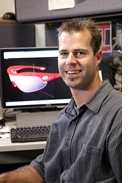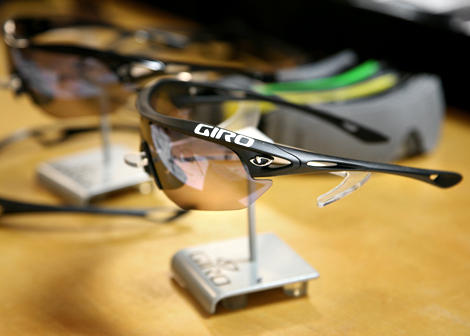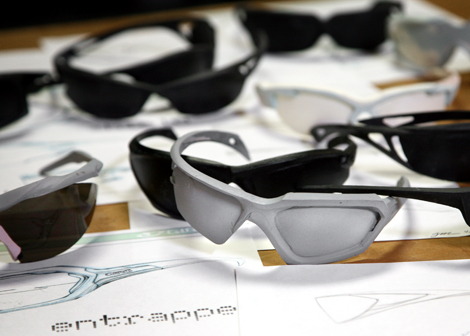Career Insights are companion articles that have been developed to help students learn more about the careers featured in Futures Channel shows. Each one explores, in the professionals’ own words, the classes and educational pathway that best prepared them for their career as well as advice for entering that profession.

Full Name: Hilgard Muller
Company: Giro/Easton Bell Sports
Job Title: Industrial Design Manager
1. Which college did you attend and what was your major?
I attended San Jose State University from 1992-1997 with a focus on Industrial Design
I think it’s important for people to understand the true meaning of Industrial Design. The name, by itself, is really deceptive. It sounds like a career that involves designing factories or train stations. This is far from the reality of true industrial design. Industrial Design (ID for short) is the conceptual side of engineering, focusing on user interface, also known as ergonomics, overall product form and shapes, as well as the overall aesthetics of a product. The ID person is responsible for creating the relationship between the product and the consumer. The difference between Industrial Design and engineering is that industrial design is the reason someone is drawn to a product on the shelf and decides to make a purchase, whereas the engineering is why people decide not to return it because it works. If one of these does not work, you won’t have a sustainable product.
2. What classes (high school or college) best prepared you for your current career?
In high school, I would say the most beneficial classes were the elective art classes I took. These classes helped me build the foundation of understanding the basic principles of negative space and proportions. If you are attending college for Industrial Design, I would say that there isn’t any one specific course that would be the most beneficial for pursuing a career in industrial design. Each course has its purpose and brings value to your career in the long run. The most beneficial courses are the ones that build skills in the areas you think you need the most improvement. Industrial design is really a process, most design programs focus on teaching students how to navigate through this process in order to achieve the most optimum designs possible.

3. What inspired you to pursue your career?
As a child, I was surrounded by immense creativity. I grew up in LA, arguably the heart of design. My dad was an art director working in the heart of LA and I spent many long hours after school playing and working at his office. I was exposed to many different types of creative people, ranging from graphic designers, photographers, make-up artists, set builders and industrial designers.
At the time, it really didn’t mean much to me. In fact, it all seemed pretty normal to me. Being exposed to all of this at such a young age really changed how I looked at things in my everyday life. All my friends would see some new toy advertised on TV and go straight to their parents and ask if they could get one of those fancy new toys. Me, on the other hand, well, I would sit there and figure out how I could make my own fancy new toy, and how I could make it even better. Most of the time I would try and fail, but it never stopped me from tackling my next challenge.
When I was a sophomore in high school, I was fortunate enough to have a family friend pull me aside and tell me that I should really look into Industrial Design as my major. Ever since then, I have been convinced that this is what I should do.
4. What do you love most about your job?
The next most satisfying part of my job is seeing products I have designed out in the real world, whether it’s in the stores or being used by someone. I think any creative person really enjoys watching people react to their creations. In the end, it’s these reactions that drive designers and artists to push their next creations to the limit.
 5. What is your best advice to students considering pursuing a job in your field?
5. What is your best advice to students considering pursuing a job in your field?
Never cheat the process. If you stay true to the design process, good design will happen and your work will speak for itself. If you cheat the process and cut corners, you could fall short on your designs and your work will be inconsistent. Also, make sure that you are passionate about what you are designing—it’s important to keep that passion strong or your designs will suffer.
